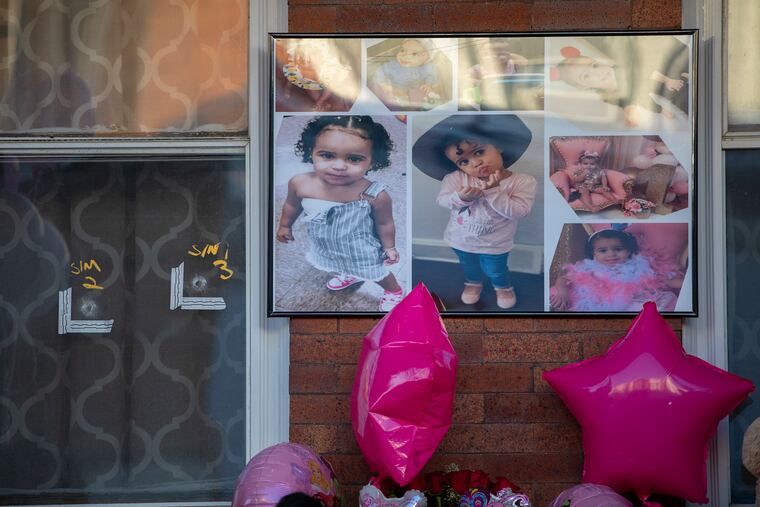Pa. and N.J. efforts could chip away at gun crime | Editorial
Pennsylvania and New Jersey partner to better share intelligence, data, and research in an effort to interrupt the 'iron pipeline' of illegal firearms trafficking between the two states.

The semi-automatic rifle used in the fatal shooting of 2-year-old Nikolette Rivera last October in Kensington and later sold in Camden was among 36 firearms recovered in that city by a joint Pennsylvania-New Jersey law enforcement probe into illegal gun trafficking between the two states. “Operation Zombie” also led to the arrest of five suspects and helped publicize the launch of a PA/NJ Gun Trafficking Initiative aimed at interrupting the so-called iron pipeline of illegal firearms. These pipelines exist regionally and nationally because of the continued lack of reasonable firearms regulations. But this bistate effort does hold the promise of improving the tools available to gun crime investigators on the street.
Whether sold one-on-one or by organized groups of individuals, such as the five “Operation Zombie” suspects, many of those guns flow from Philly to Camden — thanks in part to New Jersey’s regulations on legal firearms sales, which are stronger than Pennsylvania’s. About 80% of the guns used for criminal purposes in New Jersey are brought in from other states, according to the U.S. Bureau of Alcohol, Tobacco, Firearms and Explosives. New Jersey is a lucrative market for illicit guns.
The new initiative likely won’t be the last such partnership as the carnage continues on Philly’s streets. Pennsylvania Attorney General Josh Shapiro last July announced a statewide program called Track + Trace to toughen investigations of how guns purchased legally end up in the hands of convicted felons or other criminals. Separately, Shapiro announced a grant to assist two grassroots organizations combating straw buying of guns in Philly by friends, girlfriends, or acquaintances of those unable to lawfully make such purchases, and noted that information about crime guns “often [is] not submitted to shared law enforcement databases.”
Cooperation between Philly and Camden police and among other law enforcement agencies in Pennsylvania and New Jersey isn’t new. But information about illegal sellers and purchasers has tended to be somewhat siloed, even as the federal National Integrated Ballistic Information Network has since 1999 enabled rapid identification and matching of firearms or ammunition criminally used in more than one jurisdiction.
Cops need to know more about who’s supplying the guns to those who use them to injure or kill people, and the new bistate initiative is expected to standardize a more robust sharing of data and intelligence. That should help police in both states resolve cases — and take illegal guns off the streets.
Supporters of the collaboration said research into causes and prevention of gun violence also will be better shared. New Jersey Gov. Phil Murphy last September announced the state’s Center on Gun Violence Research at Rutgers University. In Philadelphia, one recent Temple University study found 244 clusters of three or more gunshot casualties in an 11-year period.
Research, data, collaboration, and communication are critical tools. But until such time as the National Rifle Association’s distorted, self-serving, and immensely profitable misinterpretation of the Second Amendment no longer holds sway over lawmakers, a modest effort like the New Jersey and Pennsylvania initiative may be our best chance to prevent the next Nikolette Rivera.